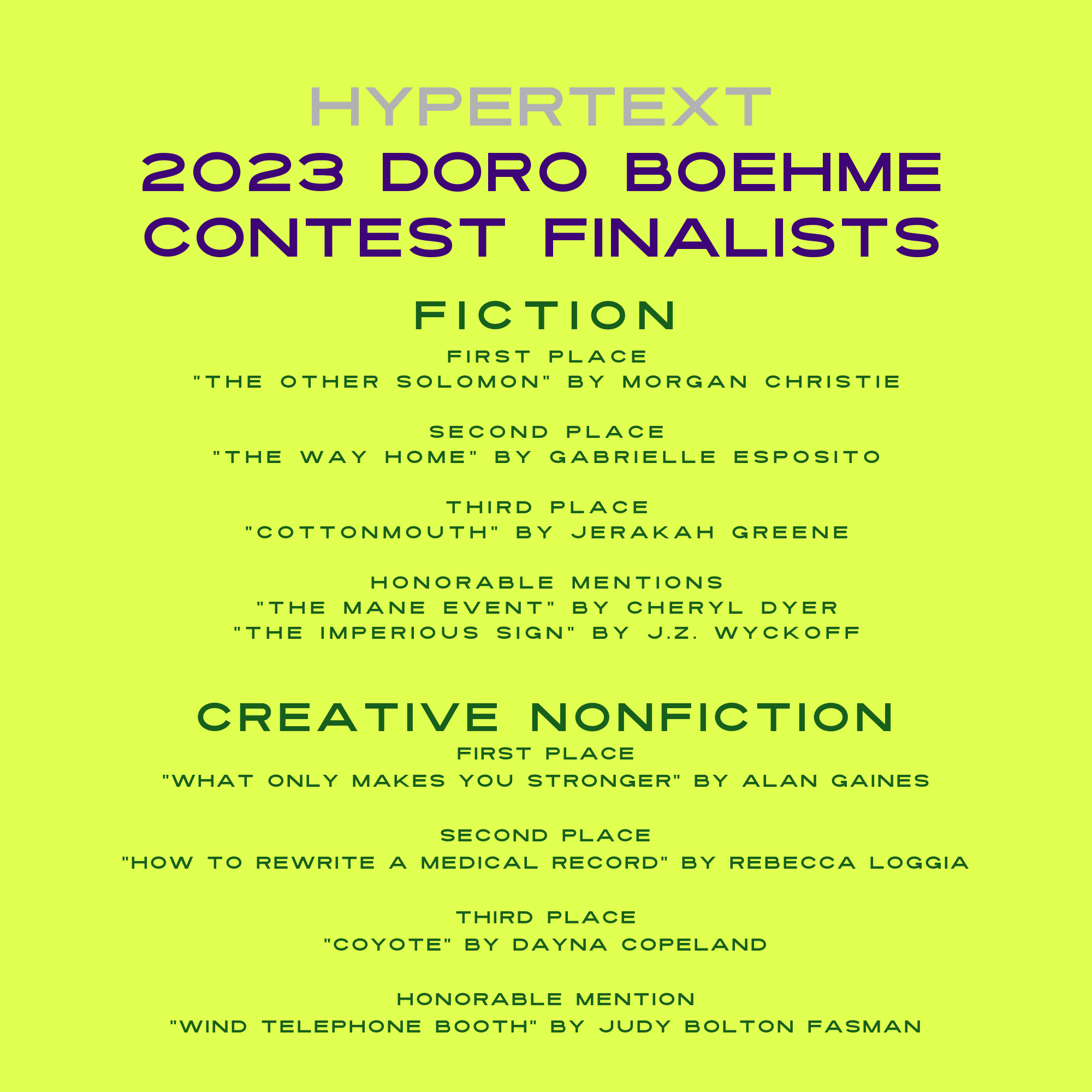

The first time I met Doro, who passed away in March, 2020, I was struck by her intellect, kindness, and startling beauty. A beloved wife, mother, and friend, Doro was a gifted visual artist and writer, passionate about experimental art forms and the visual arts, especially photography. An excerpt from Doro’s novel, “Teaching Water How to Drown,” appeared in Hypertext Review, Spring 2018. Doro hailed from Stuttgart, Germany and lived and worked in Chicago, taking great pride in curating the Joan Flasch Artist Book Collection at the School of the Art Institute and educating the public about the Collection. For more about Doro, please visit her site.
We are grateful to authors Michele Morano and Donna Miscolta for judging the Doro Böhme Memorial Essay & Short Story Contest.
The 2021 Doro Böhme Memorial Essay judge was judged by Michele Morano. Michele Morano is the author of the travel memoir Grammar Lessons: Translating a Life in Spain and the new essay collection, Like Love, long-listed for the PEN Diamonstein-Spielvogel Award for the Art of the Essay. Her work appears in many literary journals and anthologies, including Hypertext and Best American Essays. She teaches creative writing and chairs the English Department at DePaul University in Chicago.
The 2021 Doro Böhme Memorial Short Story judge was Donna Miscolta. Donna Miscolta’s third book of fiction Living Color: Angie Rubio Stories was published by Jaded Ibis Press in September 2020. It was named to the 2020 Latino Books of the Year list by the Los Camadres and Friends National Latino Book Club. Her story collection Hola and Goodbye, winner of the Doris Bakwin Award for Writing by a Woman and published by Carolina Wren Press (2016), won an Independent Publishers award for Best Regional Fiction and an International Latino Book Award for Best Latino Focused Fiction. She’s also the author of the novel When the de la Cruz Family Danced from Signal 8 Press (2011), which poet Rick Barot called “intricate, tender, and elegantly written – a necessary novel for our times.” Recent essays appear in Los Angeles Review, McSweeney’s, pif, and the anthology Alone Together: Love, Grief, and Comfort in the Time of COVID-19. She has work forthcoming in Indomitable/Indomables: A multigenre Chicanx/Latinx Women’s Anthology.

“Soft” invites us along an elevated train commute in Chicago as the main character Raymond is faced with an unexpected moral crisis. The story never pulls punches or surrenders to cliche, even through to its masterful ending. The language is lyrical as it depicts Raymond’s unscrupulous actions with delicate poise, while never faltering in preserving his humanity.
The direct, commanding voice in “Tallahassee” at once engages and alienates us. We cannot help but cling to the bleak events unfolding. The writer delivers a purposefully disjointed style that mirrors a family trauma in the most haunting, familiar way.
“Necessary Detour” is precisely controlled and well-paced in its telling of one man’s relationships during the course of a single train ride. Along the journey, we’re offered the jagged shards of a shattered marriage. Still a hope for something new again follows us home after the last stop.